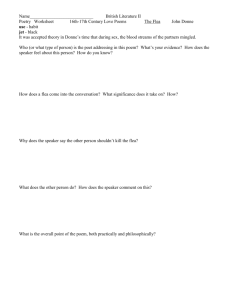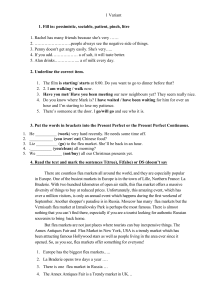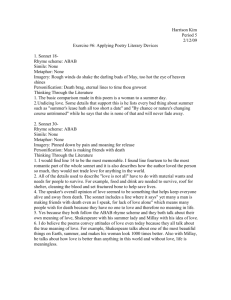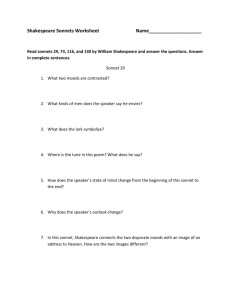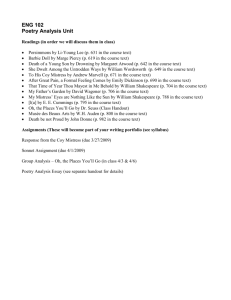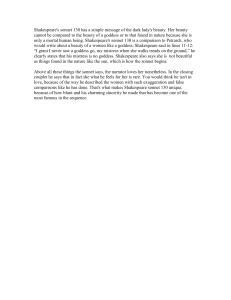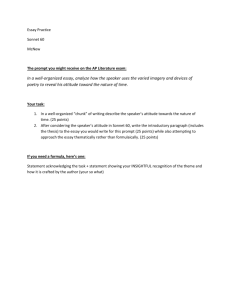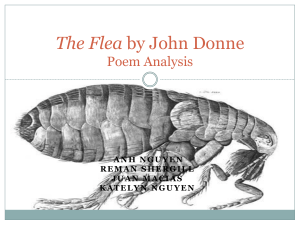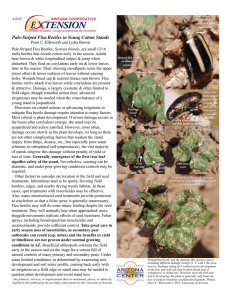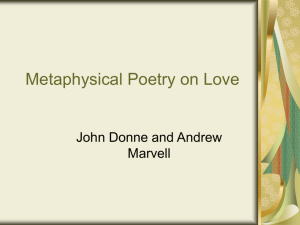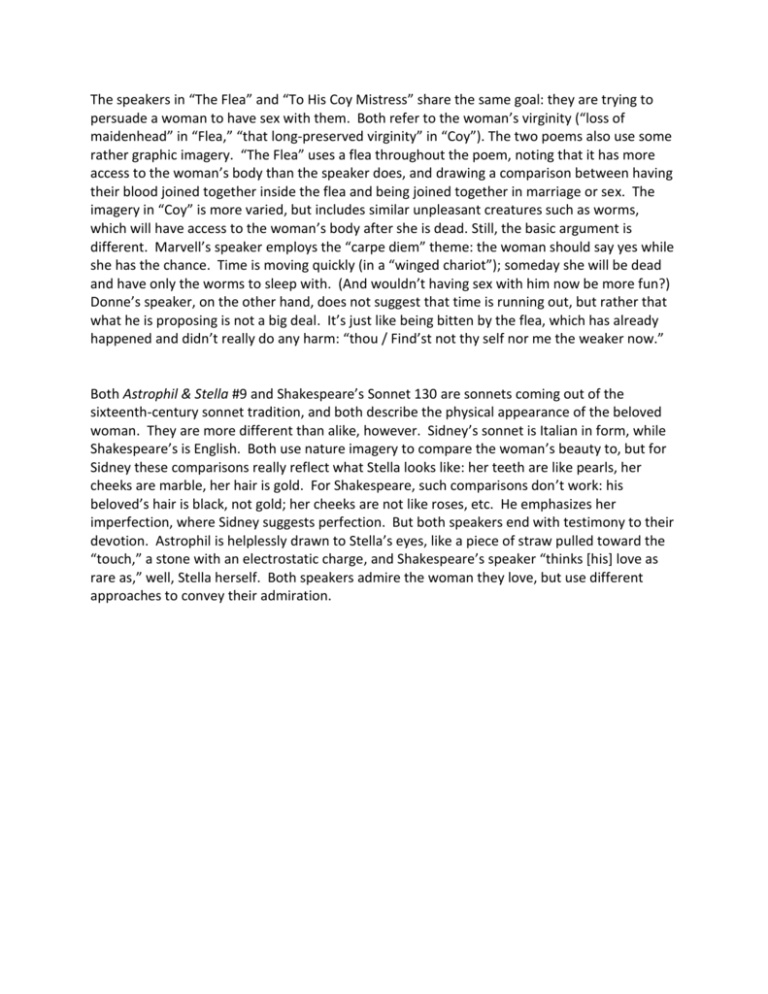
The speakers in “The Flea” and “To His Coy Mistress” share the same goal: they are trying to
persuade a woman to have sex with them. Both refer to the woman’s virginity (“loss of
maidenhead” in “Flea,” “that long-preserved virginity” in “Coy”). The two poems also use some
rather graphic imagery. “The Flea” uses a flea throughout the poem, noting that it has more
access to the woman’s body than the speaker does, and drawing a comparison between having
their blood joined together inside the flea and being joined together in marriage or sex. The
imagery in “Coy” is more varied, but includes similar unpleasant creatures such as worms,
which will have access to the woman’s body after she is dead. Still, the basic argument is
different. Marvell’s speaker employs the “carpe diem” theme: the woman should say yes while
she has the chance. Time is moving quickly (in a “winged chariot”); someday she will be dead
and have only the worms to sleep with. (And wouldn’t having sex with him now be more fun?)
Donne’s speaker, on the other hand, does not suggest that time is running out, but rather that
what he is proposing is not a big deal. It’s just like being bitten by the flea, which has already
happened and didn’t really do any harm: “thou / Find’st not thy self nor me the weaker now.”
Both Astrophil & Stella #9 and Shakespeare’s Sonnet 130 are sonnets coming out of the
sixteenth-century sonnet tradition, and both describe the physical appearance of the beloved
woman. They are more different than alike, however. Sidney’s sonnet is Italian in form, while
Shakespeare’s is English. Both use nature imagery to compare the woman’s beauty to, but for
Sidney these comparisons really reflect what Stella looks like: her teeth are like pearls, her
cheeks are marble, her hair is gold. For Shakespeare, such comparisons don’t work: his
beloved’s hair is black, not gold; her cheeks are not like roses, etc. He emphasizes her
imperfection, where Sidney suggests perfection. But both speakers end with testimony to their
devotion. Astrophil is helplessly drawn to Stella’s eyes, like a piece of straw pulled toward the
“touch,” a stone with an electrostatic charge, and Shakespeare’s speaker “thinks [his] love as
rare as,” well, Stella herself. Both speakers admire the woman they love, but use different
approaches to convey their admiration.

